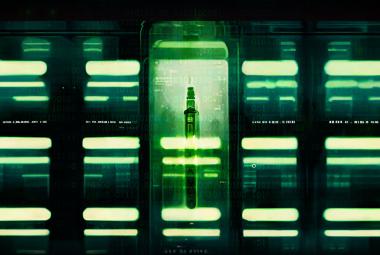Six years ago we experienced a practical test of our epistemology (the study of knowledge, its scope and limits): the apparent threat of a widespread computer calendar "bug" known as "Y2K." Was it real or an imaginary tempest in a teapot? Among many misinformed, the debate continues to this day. In many ways, the entire issue was a "laboratory course" in the use of our epistemological tools.
Myth or Narrow Escape?
There are many who still believe it was all a myth, despite the fact that penurious corporations spent over a trillion dollars in remedial and anticipatory preparations.
The cynical critics dismiss the fact that many hard-working and talented professionals worked hard - and prayed hard - to make the intractable deadline and avoid disaster. (Fortunately, although there were over a thousand deleterious incidents, none was really life threatening. Many assume it turned out to be a false alarm.)
But the epistemological question still remains. As John Loeffler quipped: "If the captain of the Titanic had made it to New York, would that have proved that he had enough life boats?"
One of the disturbing lessons during that troubled period was the bizarre response of some churches. Somehow the entire issue became a source of "doctrinal" divisions! We even received email from people who had been asked to leave their fellowships because they were "caught" preparing for Y2K! Preparation was deemed, by some, as a failure to "trust God." Some of the psychological and sociological lessons went far beyond the inadequacies of computerized calendar calculations.
We bring this all up because we all are now about to be given a re-exam.
A Reprieve or a Reprise?
What will soon become an emergent and recurring topic in the news are the implications of an "electromagnetic pulse" (EMP) and the alarming vulnerability of the United States to such an attack. This vulnerability will be increasingly heralded by unimpeachable experts. (I have had the opportunity to discuss this with the top experts in the strategic intelligence community in the past few weeks.)
A nuclear detonation on the ground, characterized by the familiar mushroom-shaped cloud, is well known to everyone. What is probably less well known are the effects of a nuclear detonation at high altitude, which includes a very powerful electromagnetic pulse (EMP). Such a detonation could literally destroy the critical infrastructure - power, telecommunications, water, food supply, fuel, etc. - of the United States for years! The very means of recovery would be itself destroyed and rather permanently. It would literally return the country to the 19th century and lead to its demise as a major world power.
The Chilling Challenge
The parallels to Y2K are chilling. What makes this topic so timely is the ostensible advent of nuclear weapons - and their delivery capabilities - in the hands of irrational terrorists with nothing to lose. The primary sponsor of terrorism is Iran, and the mullahs in control are the most extreme of the extremists (with North Korea also a contender).
How do you prepare? (Does Matthew 16:2, 3 apply?) How will you apply your epistemological tools to this challenge? But then, how does all this affect your priorities? Your personal stewardship? To your family? To your King?
"Stayed tuned. Film at eleven."





